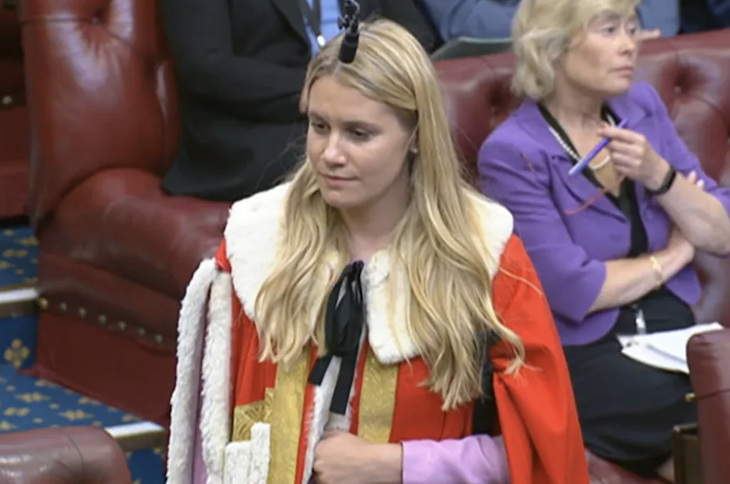It is clear who is the unnamed target of Labour’s rule change over political nominations to the House of Lords. When two bright but relatively unknown political advisers aged 29 and 30, Charlotte Owen and Ross Kempsell, were elevated to the Lords last year after being nominated by Boris Johnson, there were loud complaints. Critics said that party loyalty had counted for everything and experience (or rather lack of it) for very little. This week, Labour amended the rules so that parties will have to explain why a person is fit to be nominated to the Lords. The citation will not affect the process of appointment but will be published for all to see if the candidate is successful.
Labour’s thinking is clear: let’s put a stop to the likes of Kempsell and Owen from being parachuted in
The Commons announcement from Cabinet Office Minister Nick Thomas-Symonds was brief, but Labour’s thinking is clear: let’s put a stop to the likes of Kempsell and Owen from being parachuted into parliament’s upper chamber. By requiring a public account of would-be peers’ experience and suitability, Labour clearly mean to make such appointments more difficult in future, and gain kudos as the responsible party that wants to keep the Lords as a chamber of maturity and expertise.
They might succeed. But don’t bank on it; the idea itself is not obviously a very good one.
For one thing, it’s all very well to attack the idea of appointing the loyal but relatively young: but up until now the indications are the other way. Both Baroness Owen and Lord Kempsell seem to be doing a pretty good job. For all their inexperience they are no legislative slouches; the government has come into some sharp and awkward questioning from them on matters ranging from music in schools and the Chagossian debacle to bad university teaching (where Baroness Owen, no doubt rarely for a member of the Lords, was able to cite her own position as someone still paying off a ruinous student loan). To be fair, the same can be said of a non-Conservative who is now an even younger member of the House, Plaid Cymru appointee and ultra-progressive political stalwart Baroness Smith of Llanfaes.
Some people, including no doubt many MPs in this remarkably lacklustre government, may like the idea of rules aimed at advantaging potential peerage candidates who can fill out a CV with a sizeable list of credentials and experience. But think a moment: do we really want to reduce Lords’ appointments to a kind of glorified corporate HR exercise, aimed less at effective government as at selecting the candidate with the highest qualifications and making sure that they get the job?
We should also ask if we are we happy with the likely result, which is something of a political and social monoculture. The candidates with the most experience will often be those with mildly progressive views who have managed to climb the greasy pole of quangocracy or public sector administration while keeping their nose clean; in short, those who haven’t rocked the boat so far and probably won’t in future.
We need to remember that one of the most convincing complaints about the current House of Lords is precisely that it is made up of reliable operators of this sort: that it is a combination of rest-home for party stalwarts, and a body that can be trusted in a fairly progressive way to oppose attacks on the vested interests of institutions from the civil service to the NHS and the universities. One might have thought the introduction of the odd stirrer and maverick who enjoyed speaking out of turn was actually rather a good thing.
How should the opposition respond to this attempt to shore up the comfortable old order? The answer is simple: take the fight to the enemy. If the Tories, or for that matter Reform or anyone else, have a candidate with intelligence and get-up-and-go as well as loyalty, but lacking a long list of appointments among the great and the good, it should make a virtue of what Labour seems to regard as a vice, and say exactly that in its citation. The potential for good publicity is excellent. There are votes to be had if you can project yourself as a party that promotes peers, not for what they have done in the past, however meritorious, but for their intelligence and potential to hold government to account in future years. You can even play the real diversity game here: by slily introducing clever non-conformists you are doing wonders for genuine diversity of opinion.
Come to think of it, there could even be a bit of historical revisionism here. The hereditary House of Lords always had its share of young members with all sorts of different backgrounds. The expelling of the hereditary members and their replacement with life peers was no doubt well-intentioned: but its unintended consequence has been the morphing of the House into a congeries of the largely successful middle-aged and elderly. The injection of a few members of the awkward squad could do wonders in making it once again a successful revising chamber.







Comments